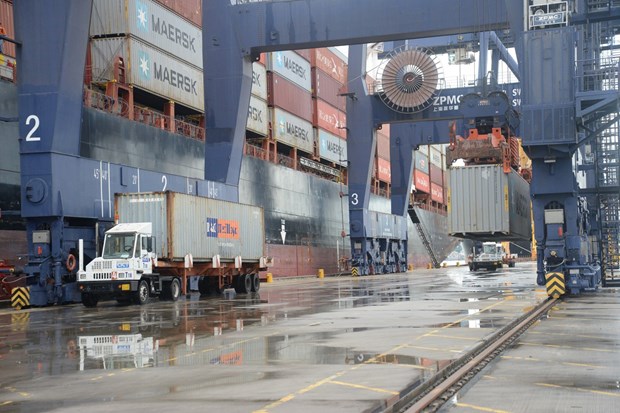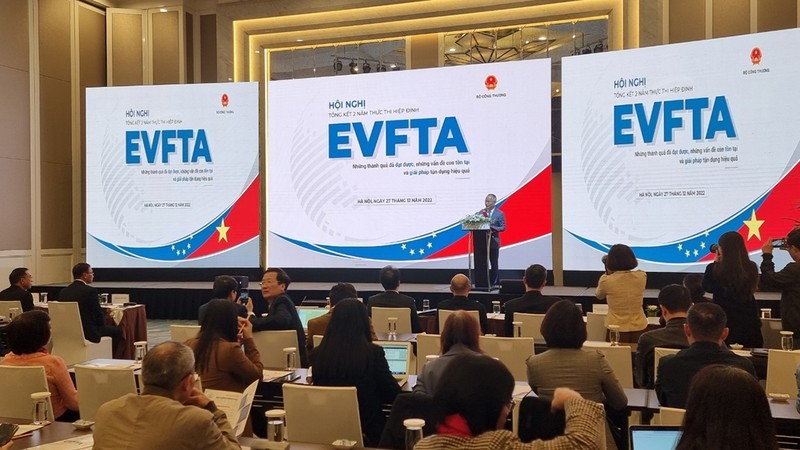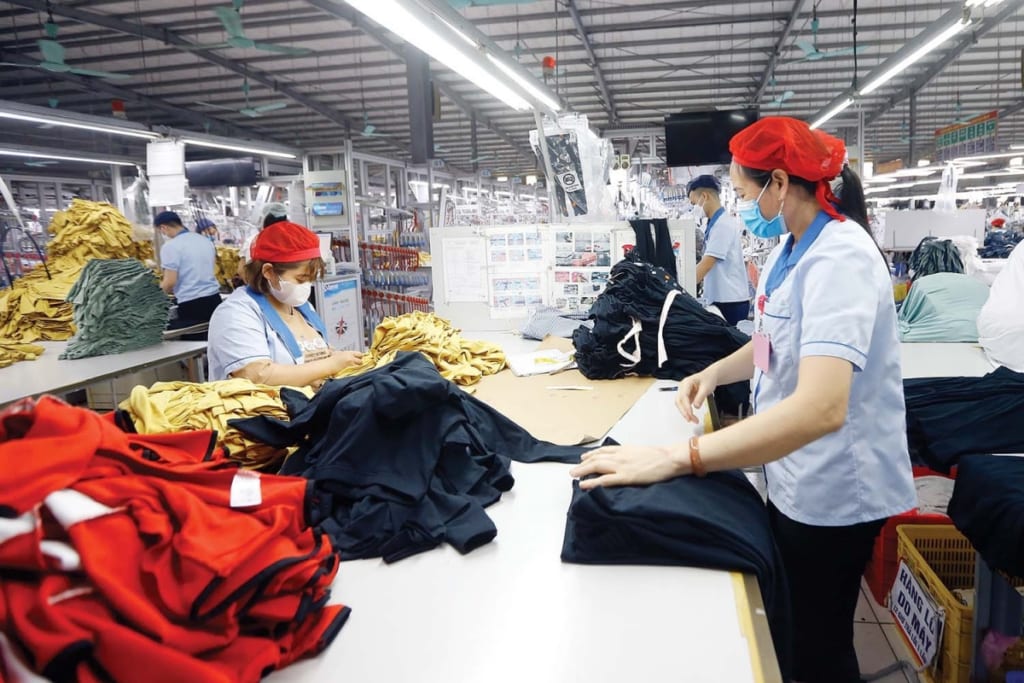In the global business landscape, outsourcing has become a strategic choice for companies seeking cost-effective and efficient labour solutions. Outsourcing the workforce in Vietnam has gained momentum as a top choice, thanks to the country’s adaptable, diverse, and skilled workforce. This article delves into why Vietnam stands out as a premier outsourcing destination and how its workforce continues to evolve to meet the needs of international employers.
1. A Skilled and Diverse Workforce: The Core of Vietnam’s Outsourcing Advantage
One of the main reasons Vietnam has become a favoured outsourcing destination is its workforce diversity. Vietnam’s labour pool includes professionals trained across various industries, from technology and manufacturing to customer service and hospitality. The skills within the outsourcing workforce in Vietnam are a significant draw for companies looking for reliable and versatile employees.
Highly Skilled Across Key Sectors
Vietnamese workers are known for their high proficiency in areas such as electronics, textiles, and IT. Vocational and technical training programs ensure that employees in these fields are equipped with hands-on skills that directly meet industry needs. This level of skill across multiple sectors makes it easier for companies to outsource a range of functions in Vietnam.
Case in Point:
The electronics manufacturing industry has experienced a surge in outsourcing to Vietnam due to the workforce’s technical expertise. Workers in this sector undergo specialized training, ensuring that they are job-ready and capable of handling complex production tasks for global brands.
2. Adaptability to Evolving Global Standards
Vietnamese workers are known for their ability to quickly adapt to new industry standards and technology, a key factor in the country’s success as an outsourcing hub. This adaptability is critical as businesses face shifting demands and technological advancements.
Quick Learners and Flexible Workers
The outsourcing workforce in Vietnam is characterized by a high level of adaptability. Workers in sectors like IT and manufacturing often receive continuous training to keep pace with industry changes. This flexibility benefits international employers who need teams that can scale up or modify their skills according to project requirements.
Example:
In the IT sector, Vietnamese professionals are well-versed in emerging technologies such as cloud computing, artificial intelligence, and software development. Their ability to quickly adopt new tools and methodologies has made Vietnam a go-to destination for IT outsourcing.
3. Competitive Labor Costs Paired with High Productivity
Vietnam’s cost-effective labor is a major incentive for outsourcing. Although labor costs in Vietnam are lower than in many other countries, the productivity level remains high, making it a valuable combination for international employers.
Balancing Cost with Efficiency
For companies looking to manage expenses, the outsourcing workforce in Vietnam offers a balance of affordability and productivity. Vietnamese workers are known for their strong work ethic and efficiency, which allows companies to achieve their business objectives without sacrificing quality.
Example in Manufacturing:
In the textile industry, Vietnam’s workforce provides cost-effective solutions without compromising production speed or quality. International brands outsource to Vietnam to benefit from affordable, skilled labor that meets high manufacturing standards.
4. Continuous Workforce Development to Meet Global Demands
Vietnam’s commitment to workforce development has contributed significantly to its rise as a premier outsourcing destination. Government initiatives and private partnerships support training and education programs that prepare Vietnamese workers for diverse roles in the global market.
Investments in Training Programs
Through both public and private sector collaboration, vocational and technical programs are continually updated to meet international standards. These programs focus on fields like electronics, customer service, and software development, preparing graduates to enter the workforce with industry-relevant skills.
Case Study in Customer Service
With the growth of call centres and customer support roles, the outsourcing workforce in Vietnam includes well-trained individuals skilled in communication and service. Training programs emphasize language proficiency and customer handling skills, making Vietnamese workers highly competitive in customer-focused roles.
5. Cultural Compatibility and Strong Work Ethic
Vietnamese culture places a strong emphasis on diligence, respect, and teamwork. These values resonate well with international employers who seek employees who are dependable and committed to quality.
Alignment with International Standards
The outsourcing workforce in Vietnam is often praised for its cultural compatibility with Western business practices. Vietnamese workers are known for their professionalism and dedication, making it easy for global companies to integrate them into their teams.
Example in Team-Based Projects
In sectors requiring collaboration, such as software development or project management, Vietnamese workers excel in team settings. Their cooperative approach and focus on achieving collective goals align well with the work cultures of many international companies.
6. Strategic Location and Growing Infrastructure
Vietnam’s geographical location and developing infrastructure make it a strategic hub for outsourcing in Asia. Proximity to major Asian markets, combined with reliable logistics, enhances Vietnam’s appeal for global businesses.
Efficient Supply Chain Integration
Vietnam’s proximity to countries like China, Japan, and South Korea allows for faster supply chain integration. Additionally, the country’s expanding infrastructure, including new transportation and digital networks, supports efficient project implementation for outsourcing workforce in Vietnam.
Example in Logistics Support
For companies with regional distribution needs, Vietnam provides a streamlined logistics network that supports outsourcing in manufacturing and assembly. The country’s infrastructure development ensures that outsourced projects meet timely delivery expectations.
7. Government Support for Outsourcing Initiatives
The Vietnamese government actively supports the growth of outsourcing industries, recognizing its importance to the national economy. Policies and incentives encourage both local and foreign companies to invest in and collaborate with Vietnamese talent.
Government Initiatives and Policies
Policies that facilitate foreign investment and training incentives help attract businesses seeking to leverage the outsourcing workforce in Vietnam. The government’s support is evident in sectors like technology, manufacturing, and customer service, where foreign partnerships are common.
Example in Foreign Partnerships
Government policies encouraging collaboration have led to successful partnerships with global firms in various sectors. This support enhances job opportunities for Vietnamese workers and strengthens Vietnam’s position as a leading outsourcing hub.
8. Vietnam’s Focus on Innovation and Future Readiness
Vietnam invests in future-focused industries, positioning itself as a forward-thinking outsourcing destination. As fields like technology, automation, and renewable energy grow, the outsourcing workforce in Vietnam is evolving to meet these emerging demands.
Preparing for High-Tech Industries
Vocational and higher education programs in Vietnam are increasingly focusing on technology-driven fields. This preparation ensures that Vietnamese workers are equipped for roles in advanced industries, making the country attractive to international employers in high-growth sectors.
Example in Renewable Energy
As Vietnam prioritizes sustainable energy, vocational programs now include training in green technology and renewable energy management. This positions Vietnam as a provider of skilled workers for future-focused industries, aligning with global sustainability trends.
Conclusion
Vietnam has proven to be a top destination for outsourcing, thanks to its skilled, adaptable, and diverse workforce. The outsourcing workforce in Vietnam excels across various sectors, from electronics and IT to customer service and logistics, offering international employers both affordability and quality. As Vietnam’s workforce continues to evolve and adapt to global standards, the country’s position in the outsourcing market is expected to strengthen further.
With government support, strategic partnerships, and a strong commitment to workforce development, Vietnam is set to remain a leading outsourcing hub. The combination of skill, cost-effectiveness, and adaptability makes the outsourcing workforce in Vietnam a valuable asset to businesses worldwide.




